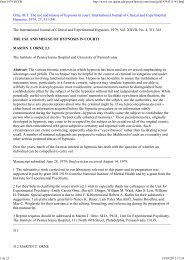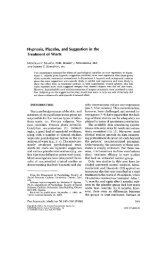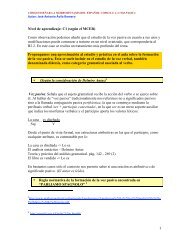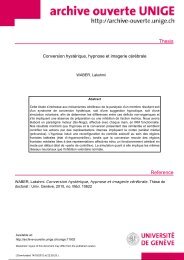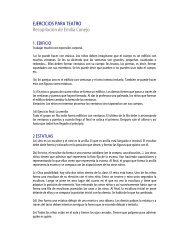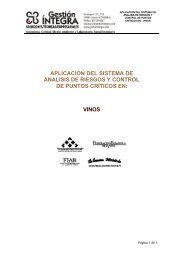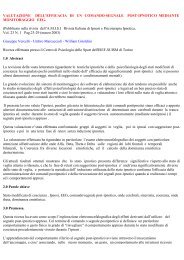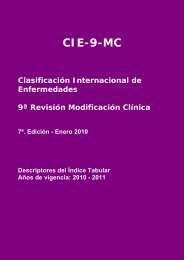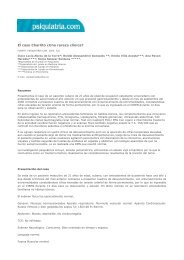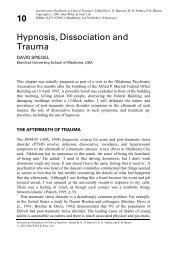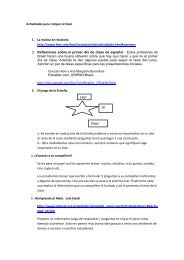Diccionario etimológico comparado de la lengua castellana
Diccionario etimológico comparado de la lengua castellana
Diccionario etimológico comparado de la lengua castellana
You also want an ePaper? Increase the reach of your titles
YUMPU automatically turns print PDFs into web optimized ePapers that Google loves.
2702 FÚTIL FUTUR<br />
Fú-ti-1. adj.<br />
ETIM. — Del <strong>la</strong>t. fu-ti-lis, -le. loque<br />
fácilmente <strong>de</strong>rrama el licor; frágil, quebradizo,<br />
fútil, f<strong>la</strong>co, débil, inconstante,<br />
vano, ligero, etc. ; el cual se <strong>de</strong>riva <strong>de</strong><br />
fund-ere^ fundir, <strong>de</strong>rretir, liquidar los<br />
metales, <strong>de</strong>rramar, arrojar, etc., primit.<br />
<strong>de</strong> FUND-iR (cfr.). Sirve <strong>de</strong> base á fu-tili-s<br />
(^=yud-t¿-lisj, <strong>la</strong> raíz fu-d-, amplificada<br />
<strong>de</strong> FU-, que correspon<strong>de</strong> á <strong>la</strong> indoeuropea<br />
GHU-, echar, vaciar, <strong>de</strong>rramar,<br />
verter, regar, rociar, echar en mol<strong>de</strong>,<br />
fundir. Cfr. grg. -/é-w {=y^éF-iú), echar,<br />
<strong>de</strong>rramar, vaciar, fundir, <strong>de</strong>rretir; x^-[xa,<br />
líquido <strong>de</strong>rramado, río, curso <strong>de</strong> agua;<br />
X£ü-[Aa, xú-at-;, líquido, libación, río; acto<br />
<strong>de</strong> fundir, echar, <strong>de</strong>rramar; ^^o-vj, -y^;,<br />
líquido que se <strong>de</strong>rrama, libación; x^-oí<br />
(=Xoü?), aluvión, gota <strong>de</strong> un líquido, etc.;<br />
]Qt. fu-ti-s, -tí-s, lo que <strong>de</strong>rrama el licor<br />
fvas aquarium vocant futim^ quod in<br />
triclinio al<strong>la</strong>tam aquam infun<strong>de</strong>bant.<br />
Varr. L. L. 5. 119. M.)]/u-ti-re, ef-futi-re<br />
(=ec-fu-ti-re, por asimi<strong>la</strong>ción—cfr.<br />
ec=ex-J, char<strong>la</strong>r, par<strong>la</strong>r sin consi<strong>de</strong>ración<br />
ni reserva, <strong>de</strong>rramar inconsi<strong>de</strong>radamente<br />
<strong>la</strong>s pa<strong>la</strong>bras; */u-ta-re (futavit<br />
fudit^fataverefu<strong>de</strong>re. P<strong>la</strong>c. G1.; futare<br />
arguere est^ un<strong>de</strong> et confutare, sed Cato<br />
hoc pro SAEPius FUDissE posuít. Fest.<br />
p. 89); prim. <strong>de</strong> con-fu-ía-re, impugnar,<br />
rechazar; <strong>de</strong> don<strong>de</strong> con-fu-tar (=<strong>de</strong>rramar<br />
pa<strong>la</strong>bras en abundancia para<br />
impugnar un argumento: cf r. pref. con-),<br />
re-fu-ta-re (cfr. pref. re=red-), rechazar,<br />
redargüir, impugnar ; prim. re-fu-tar<br />
{repetir <strong>la</strong> efusión <strong>de</strong> pa<strong>la</strong>bras para<br />
redargüir); fon-s, fon-ti-s, font-em, primitivo<br />
<strong>de</strong> fuente, fonte, fontana ;<br />
fu-su-s, -sa, -sum, fundido ; *fu-si-t-ina,<br />
primit. <strong>de</strong> *fus't-ina = fust-ina, sitio<br />
don<strong>de</strong> se fun<strong>de</strong>n los minerales; futili-tas,<br />
-taí-is, -tat-em, prim. <strong>de</strong> futilidad;<br />
hau-r-ire (raíz hau-r = hau-s = ghu-s-,<br />
amplificada <strong>de</strong> ghu-), sacar, extraer,<br />
agotar, consumir, ( vaciar, <strong>de</strong>rramar,<br />
hacer salir); hau-s-tus, -ta, -tum (part.<br />
pas.). sacado fuera, bebido, consumido,<br />
agotado; ex-hau-r-ire (cfr. etimol. ex-),<br />
sacar fuera, <strong>de</strong>socupar, vaciar; primit.<br />
<strong>de</strong> ex-hau-s-tus, -ta, -tum, part. pas.; <strong>de</strong><br />
don<strong>de</strong> <strong>de</strong>scien<strong>de</strong> ex-haus-to (cfr.); gót.<br />
giu-ta (raíz (7a¿-), torrente, aluvión; ant.<br />
al. al. gio-zan, kio-zan; n. al. al. giessen;<br />
gót. giutan ; ant. nórd. gjósa, gusa;<br />
anglo-saj. geótan; ingl. gush; med. ingl.<br />
gushen, chorrear, fluir con vehemencia;<br />
hol. gudsen ; sueco (dial.) gasa; dan.<br />
gy<strong>de</strong>, etc. Le correspon<strong>de</strong>n: ingl. futile;<br />
ital. fútile; franc. fútile; cat. fútil; port.<br />
fútil. Cfr. futesa, fundir, confuso, etc.<br />
SIGN.— De poco aprecio ó importancia:<br />
Diciéndole que sus argumentos eran fútiles, que sus<br />
razones eran frivo<strong>la</strong>s, y que no venían al punto sus<br />
respuestas. Sart. P. Suar. lib. 4, cap. 9.<br />
Futili-dad. f.<br />
Cfr. etim. fútil. Suf. -dad.<br />
SIGN.— Poca ó ninguna importancia <strong>de</strong> una<br />
cosa, por lo regu<strong>la</strong>r <strong>de</strong> discursos y argumentos<br />
:<br />
Desengañados <strong>de</strong> su insubsistencia y futilidad, pasaremos<br />
á discurrir en el origen, principio y forma <strong>de</strong><br />
regu<strong>la</strong>r <strong>la</strong> égira. Mond. Exam. § 10.<br />
Futura, f.<br />
Cfr. etim. futuro.<br />
SIGN.— 1. Derecho á <strong>la</strong> sucesión <strong>de</strong> un empleo<br />
antes <strong>de</strong> estar vacante.<br />
2. fam. Novia que tiene con su novio compromiso<br />
formal:<br />
El décimo regu<strong>la</strong>ba su futura á quinientos años veni<strong>de</strong>ros.<br />
Quev. Fort.<br />
Fu-tu-ro, ra. adj.<br />
ETIM.—Del <strong>la</strong>t. fu-tu-rus, -ra, -rum,<br />
lo futuro, lo por venir, lo que será ó<br />
ha <strong>de</strong> ser; part. fut. <strong>de</strong>l verbo sum, es,<br />
est, (cuya etim. cfr. en es-er), <strong>de</strong>rivado<br />
<strong>de</strong>l primit. fu-ere, ser, estar, cuya raíz<br />
fu-, correspon<strong>de</strong> á <strong>la</strong> indo-europea bhu-,<br />
crecer, tomar aumento, criarse ; ser,<br />
existir, formarse; hacer criar, formar,<br />
crecer, producir, etc. Cfr. skt. ^T, bhú,<br />
ser, existir, llegar á ser, nacer, tener<br />
principio, criarse; resultar, salir, venir;<br />
prosperar, medrar, probar bien, salir<br />
bien; tener buen éxito, tener acierto,<br />
tener ventaja, ir en bonanza; cimentar,<br />
edificar, construir, etc.; grg. 'fú-co (eól.<br />
'fu-í-(»)='fú-y-(i)), hacer nacer, engendrar,<br />
hacer crecer; 'fu-xó-;, -tt^, -t¿v, que brota,<br />
que crece, fértil ; 'fu-T¿-v, -oü, p<strong>la</strong>nta, vegetal,<br />
árbol; 'fU-xá-;, áB-o;, brote; 'fJ-T-á/vio;,<br />
que alimenta, nutritivo; 'fu-ví, foima <strong>de</strong>l<br />
cuerpo, presencia, belleza ; (fú-ai-?, -ew;,<br />
naturaleza, substancia natural, ser, producción<br />
natural, generación, vegetación;<br />
cpu-a-ivtóc, -ixv^, -ixóv, físico, perteneciente á<br />
<strong>la</strong> naturaleza, natural; fu-ixa, -[^-ax-o;, brote,<br />
furúnculo; 'fi>-X>5,-XYÍc;, tribu, aglomeración<br />
<strong>de</strong> individuos, muchedumbie; c<strong>la</strong>se,<br />
género, especie, familia, batallón <strong>de</strong> soldados<br />
; ?fu-Xo-v, tribu, raza, familia, pueblo;<br />
'fci;, 'fíox-íJ?, gen. plur. fwx-óiv, hombre,<br />
mortal, etc.; <strong>la</strong>t. fu-o (ant.), ser; perf.<br />
fu-i; pl. perf. fu-er-am; subj. fu-issem;



